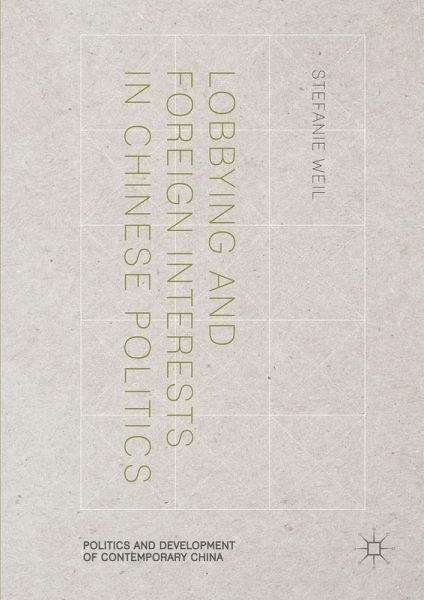
Lobbying and Foreign Interests in Chinese Politics

PAYBACK Punkte
38 °P sammeln!
This book offers a series of original arguments on the relationships that Western interest groups have with the Chinese state. It details their lobbying strategies and the leverage it gives them in policy-making in China's political system. Analysis is provided in a comparative context. The author offers inside knowledge on Western business and analyses the nature of business-government relations on domestic Chinese innovation policies. Identifying and analysing the conceptual difference between Chinese and Western actors in their relationship to the state, this book demonstrates how China's e...
This book offers a series of original arguments on the relationships that Western interest groups have with the Chinese state. It details their lobbying strategies and the leverage it gives them in policy-making in China's political system. Analysis is provided in a comparative context. The author offers inside knowledge on Western business and analyses the nature of business-government relations on domestic Chinese innovation policies. Identifying and analysing the conceptual difference between Chinese and Western actors in their relationship to the state, this book demonstrates how China's existing mechanisms for monitoring activities of Chinese interest groups are ill-suited to exerting a similar degree of control over Western actors.














